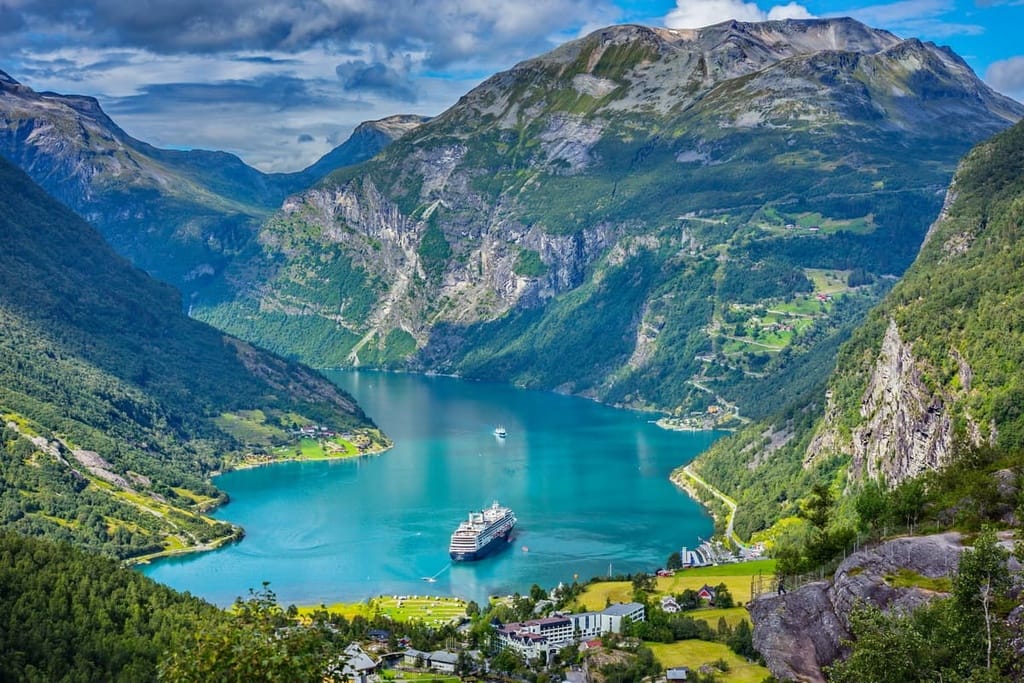American Dreaming
"We are tired of his anger and name calling and lying about subjects as mundane as crowd-size comparisons between his speeches and those of civil rights leader Martin Luther King. Further, how does he think he can win by calling Kamala Harris a “fucking bitch” while rolling around on a golf cart?"

Americans are a confounding people. We are as optimistic as we are cynical. The sunny side comes from an enduring belief in our founding document, which has us convinced we will, eventually, get around to doing the right thing. Progress toward that end constantly falters and then gets occasionally revivified by social movements and inspirational leaders. Our cynicism is equally relevant to our character and is well earned. Americans partake in what often feels like an endless list of elections after listening to promises to reduce taxes, create jobs, improve health care and control its costs, and build lasting and modern infrastructure. Only pieces of those promises are ever kept. Tax cuts result in helping the rich and corporate America and rarely touch the working class. The electorate grows disaffected and does not believe in its government or its officeholders.
And then there is anger.
I was confronting these ideas yet again one sunny morning from the window seat of a British Airways 737 flying along the western coast of Norway. I ought to have been thinking of different and more comforting notions and the enchanting country whirling away beneath me. The aircraft was over the Norwegian Sea, making a turn toward London, and I stared down at the Scandinavian Mountains marking the country’s rugged coast. Fertile valleys and farms were visible to the leeward side of the ranges and were within view of ancient fjords and glaciated lakes. I did not want to leave and wondered about the urge to voyage afar from such a land and how it could have compelled Norway’s early explorers risk the seas to settle Iceland, Greenland, and what later became Newfoundland, reaching North America 500 years before Columbus.

My trip had been made possible by the sponsors of a film festival in the city of Bergen, situated between great mountains and fjords that once made the community a center of European trade. I had been invited to show my documentary and talk about my book, both on the subject of George W. Bush, who had just launched an American invasion of Iraq based on lies about weapons of mass destruction. On my ride into town from the airport, I was as stunned by the scenery as I was by my host’s description of his country’s government and its social services. Education, from primary school to earning a PhD., is free, as is health care, which includes general practitioners, hospitals, specialists, and emergency services. Citizens who have lost their jobs can receive up to 104 weeks of unemployment benefits from the government at a livable percentage of their previous income, and at the conclusion of their work lives a public pension provides a basic livable income for all retirees.

All these benefits, (advantages might be more correct), have a cost. The pertinent question is whether they are worth the tax burden paid by citizens and their productivity. Income taxes range from 25-30 percent, social security is 8.2 and there is a Value Added Tax of 25 percent on consumable goods and services. The effective tax rate for a middle class family earning about $100,000 USD is approximately 38 - 45 percent. Middle income earners in the U.S. pay an effective rate estimated at 30-35 percent but they are also reaching deeply into their pockets to fund health care premiums and deductibles, higher education that often costs tens of thousands of dollars annually, social security and payroll taxes, and incidental charges on toll roads or assessments to retire bonds used by local municipalities for schools or infrastructure.
Norwegians, meanwhile, have one of the most generous parental leave policies in the world that gives parents 49 weeks on full salary at home with their newborn or 59 weeks at 80 percent of their wages. There is also a monthly benefit check to all families for their children, regardless of household income, and the needy are offered social assistance programs that include housing and disability benefits, and financial support for low-income individuals or families. The rate of homelessness in Norway is among the lowest in the world at 0.07 percent of the population, which in 2022 meant the country counted only 3900 unhoused citizens. The U.N.’s annual World Happiness Report consistently ranks Norway as the happiest country on Earth with an effective social service structure and extremely low crime rate.
I saw nothing to contradict any of this happy data on my visit and during the question and answer session after my presentation I was asked to explain the differences between our two countries. The inquiry was from a man who was confused as to why a nation like the United States, with so many resources in great abundance, could often make such stupid mistakes like war and pollution and environmental degradation. He was, it became clear, interested in a political mystery.
“What many of us here in Norway don’t understand is how Americans can be such kind and interesting people and still choose someone like George Bush to be your president. His Iraq war is another American lie. We know it here. There are no weapons of mass destruction. How do you good Americans let this happen?”
I was not willing to be put in a position of defending Bush, especially since my first book had offered an early criticism of his administration and its politics. The argument I offered, even if it were facile, was that democracies can make mistakes.
“My hope is that this is just a huge error in judgment by our electorate and the Supreme Court that gave him the presidency,” I said. “I have faith that this war will make Americans realize they have been conned and we will make a correction in this cycle as he runs for reelection.”
There was as much laughter as applause after my response and when Bush was easily reelected I was invited back to Bergen to explain myself during the launch of a second book on his administration. I could not, of course, make our politics accessible to outsiders but I had become the beneficiary of an additional trip to a lovely country populated by wonderful people, who still wanted answers. I had none to offer. There are moments when an upside exists for being wrong.
Norway is recognized globally as a “welfare” state, a descriptor that is a pejorative on these shores. American politics and history have lived on the mythology of rugged individualism. Work hard and make it on your own or suffer the consequences. The government owes you nothing. Even when you do not have shoes, you are expected to pull yourself up by the bootstraps. The political right wants a government that does nothing more than protect the borders, pave roads, and then gets the hell out of the way of the people who can be relied upon to build and produce until the nation’s needs are adequately met. This patent silliness ignores the fact that government has been the organizing principle of virtually every country and culture in human history since ancient Sumerians began laying out streets and creating polity. No American billionaire would have made a dime without government providing roads and rail and harbors and safe aircraft.
There is a hope, even a perception, that the U.S. might be making a turn toward national sanity and more progressive policies, though we will certainly never become Norwegian. We gave ourselves an angry president who continues to tell us our country is on the verge of societal and economic collapse and the media still offer him a podium and a microphone. Dramatic tension is good for viewership. Trump’s ascension empowered racists and xenophobes who came out of their hidey-holes and began tossing off their epithets and threats in the course of daily life, and it was slowly, but effectively, normalized.
Veiled threats have become a part of public discourse with claims that blood will flow if the dispossessed conservative king is not reinstalled. Instead, the dark movement of MAGA is confronting an ethnic woman whose party leadership already seems to be stitching our wounds back together just by taking the stage. The polls have shown her moving quickly ahead just a few weeks after her announcement while her opponent struggles to finish sentences or thoughts. His febrile mind is obsessed with sharks and batteries and movie villains and helicopters that never crashed as his campaign rattles to a near stop on a Montana runway.
Maybe America just needed greater clarity of choice or an option that did not exist until the current vice president assumed her new role. Not much positive has transpired in our politics during recent years to help us move toward “a more perfect union,” and we still cast a shadow across our democratic declarations with unwavering support for the actions of Israel in Gaza. The present occupant of the White House keeps approving billions for bombs and missiles that have killed about 40,000 people, overwhelmingly civilians - almost 50 percent who were children. Whatever the horrors perpetrated by Hamas, they do not justify Israel’s ongoing slaughter of Palestinians, which is, demonstrably, an attempt at genocide. The Democratic candidate is making demands for a ceasefire and peace negotiations but the weapons are still flowing from profiting American arms manufacturers.
The Trump fatigue has become so great, though, my belief is that any Democrat of even modest repute might have stepped into the nomination and won. We are tired of his anger and name calling and lying about subjects as mundane as crowd-size comparisons between his speeches and those of civil rights leader Martin Luther King. Further, how does he think he can win by calling Kamala Harris a “fucking bitch” while rolling around on a golf cart? As Trump begins to suffer from crowd envy and the huge numbers of people drawn to hear her message of freedom and hope, joy instead of rage, he seems to forget to use his orange face spray and begins to look weary and disaffected. My suspicion is he would drop out if he were not worried about being convicted of his early crimes against the country and thus not being able to pardon himself. His last threat will be to the electoral system that tallies his defeat and he will try to destroy the republic before he goes out the door. There exists, at least for now, a considerable chance he will soon be gone.
And Americans can start working again on their optimism and hope.